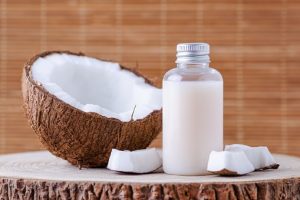
What many people don’t know is that coconut oil is high in saturated fat, which has been found to clog arteries. Olive oil contains 14 percent saturated fat per 100 grams, 16 percent in soybean oil, 17 percent for peanut oil, 49 percent for palm oil, 63 percent for fat butter, and 82 percent for coconut oil. Doesn’t seem so healthy now, does it?
Coconut oil is typically in a solid form and has a high melting point, whereas oils high in monounsaturated fats and polyunsaturated fat, like olive oil, remain a liquid at room temperature, revealing that coconut oil is far denser in fat.
There have been several studies that have examined the effects of consuming saturated fat. Some suggest that by swapping saturated fat with polyunsaturated you can reduce your risk of heart disease by at least 19 percent. Other studies have suggested the reduction is as high as 25 percent.
The direct effect of coconut oil on cholesterol has been explored too. After reviewing seven studies on the matter, it was found that coconut oil can raise LDL cholesterol (bad cholesterol).
Because there is no real evidence to suggest that coconut oil it as “magical” as claims have made it out be, it may be best that you avoid using it as a primary cooking oil, especially when there is research that points to coconut oil as unhealthy.
If you want to continue to use coconut oil, then use it for its cosmetic benefits, such as conditioning hair or skin But if protecting your heart is a priority, then it really doesn’t make the list of healthy oils you should use. Instead, opt for oils containing monounsaturated or polyunsaturated fats.
Related:
- Coconut oil and cholesterol: Is coconut oil good for your heart?
- Cooking oils compared: Which to use or avoid for health benefits